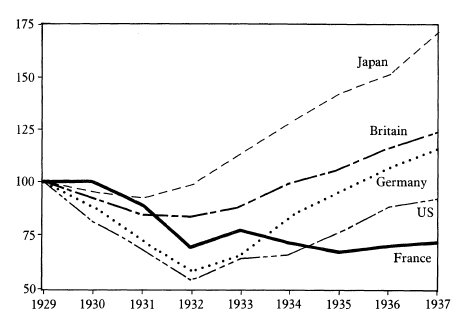One confusion I often run into is the belief that there’s some contradiction between times when I and others argue that markets are wrong — as I did when diagnosing a housing bubble, and now in questioning the market’s optimistic beliefs about inflation — and my point that low interest rates undermine the argument for immediate fiscal austerity.
What people don’t get is that in all cases I’m starting from the fundamentals. It’s the austerity types who are appealing to market psychology to reject those fundamentals — and the point then is that this market psychology is all in their imagination.
The key argument against fiscal austerity now is that it’s bad economics: it would depress the economy, while doing very little to improve the long run budget position (and might even make that long-run position worse.) I’ve done the math repeatedly on this blog.
But the austerians argue that the numbers don’t matter — we have to cut now now now or the bond vigilantes will attack.
And then the question is, where are those vigilantes? I guess they’re suckering us in by lending to the US government at negative real interest rates.
So the point isn’t that market are always right; it’s that if you’re going to claim that appeasing the markets trumps rational economic analysis, you really should have some evidence that the markets care at all about what you’re demanding.




